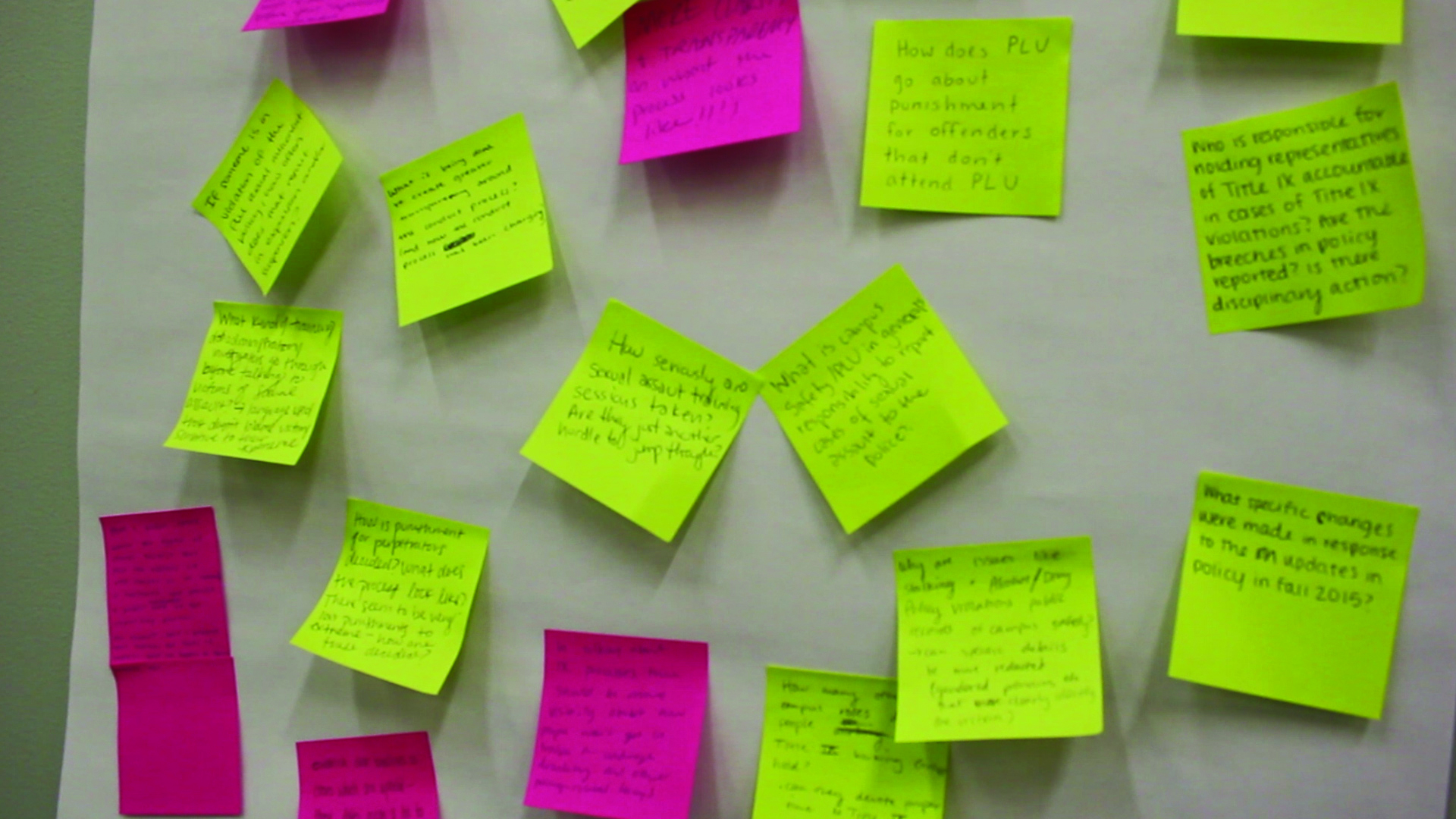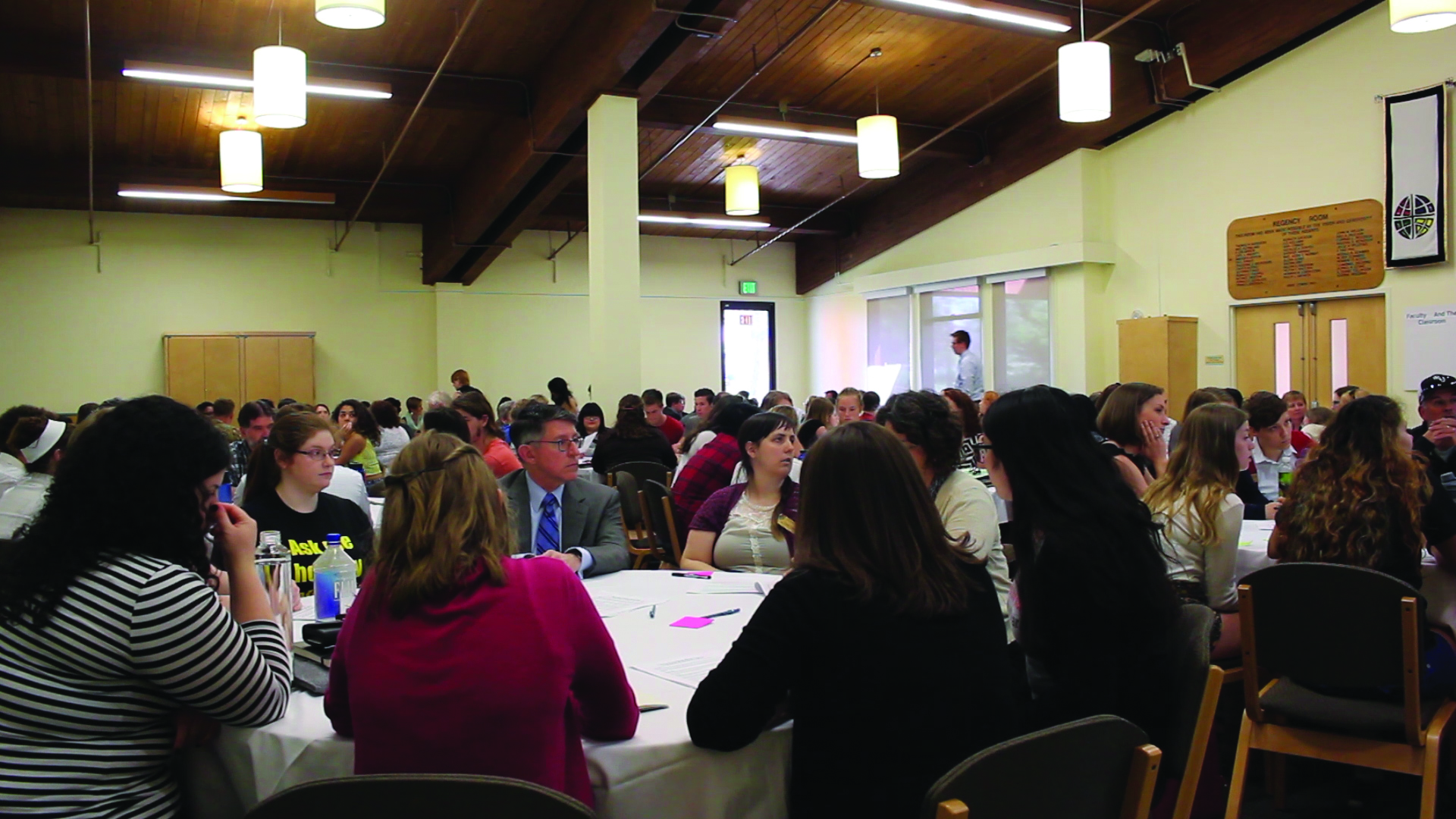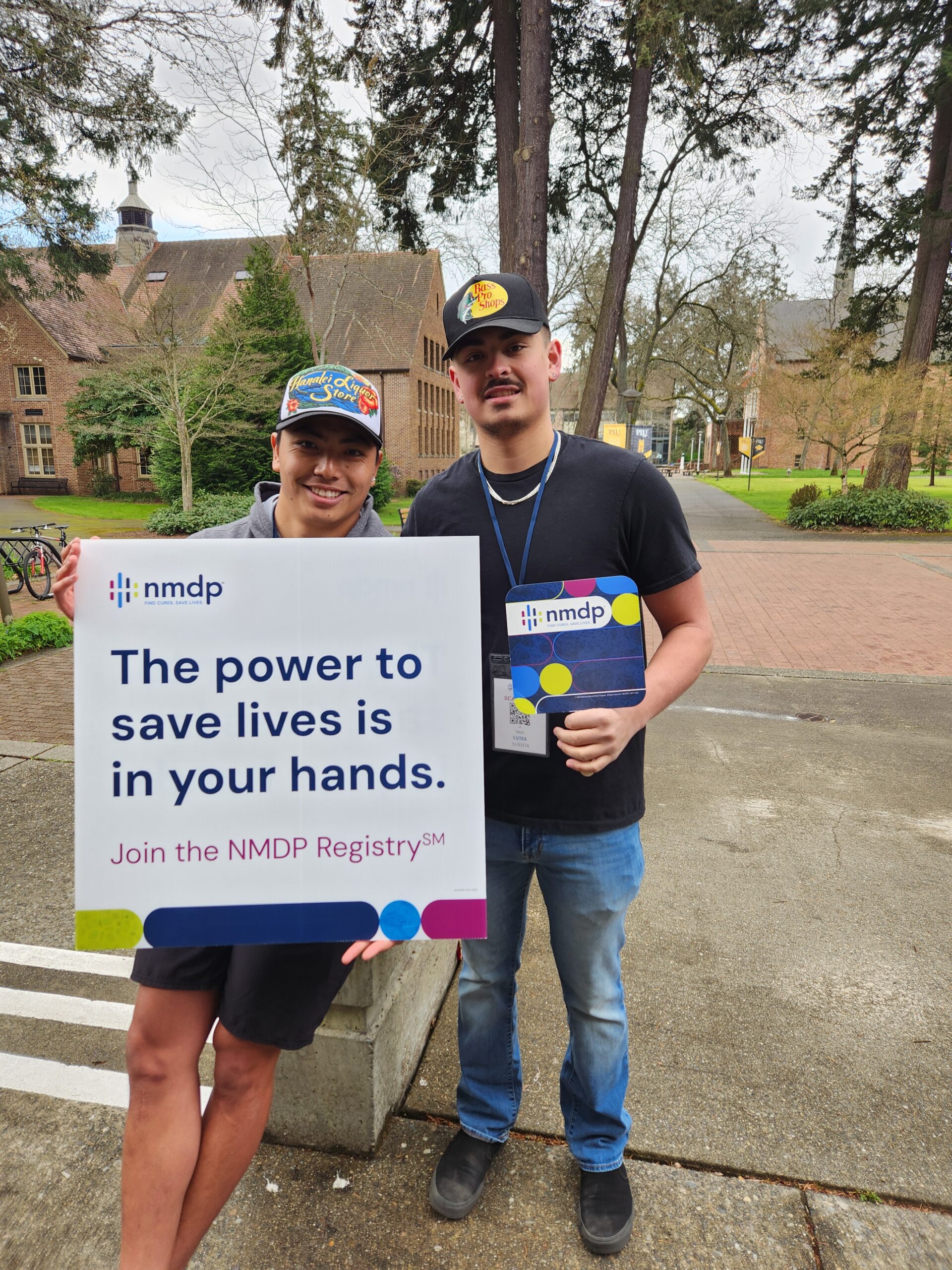
SAMANTHA LUND; Editor-in-Chief: lundsr@plu.edu
After the last issue of The Mast featured “From Silent to Survivor” about one student’s determined movement to change campus conduct policies, the community reached out for more information.
The movement, started by junior Miya Higashiyama, sparked a wave of change through campus beginning last week with a Pacific Lutheran University community-wide forum about assault culture and the conduct system.
With about 100 people in the room, Vice President of Student Life Joanna Royce-Davis opened the discussion for faculty, staff, students and administrators to talk openly and freely about their concerns and questions on Wednesday, April 20.
Higashiyama and her supporters were spread throughout the room sitting and mingling while wearing their black and gold uniformed t-shirts with “Ask me how my campus is protecting my rapist” printed across the front.
Throughout the forum, the crowd used Post-Its to tally which parts of the sexual assault system they had the most questions about. The conduct system associated with assault reports was clearly the winner, overflowing with sticky notes, with campus culture as the definite runner-up with a fair number of sticky notes. The other sections attracted significantly fewer questions, holding only one or two sticky notes.

This forum was only the first in a series, Royce-Davis said, the comments and questions from Wednesday night were saved and will be used throughout the year to direct future forums.
From the Center for Gender Equity:
“To me, the most noteworthy part of this campaign is the courage and strength of the students organizing it,” said Jennifer Smith, Director of the Center for Gender Equity.
It’s important to note that throughout the campaign, the students involved in Higashiyama’s movement haven’t been working with the Center for Gender Equity directly but are being supported by them. The center’s staff has offered to answer any questions or concerns the group might have along the way, Smith said.
“Personally, I do think that this is an important movement because it brings attention to a very serious issue,” Smith said. “And unfortunately, it’s an issue that impacts PLU and every other college and university campus.”
Smith said she understands a student’s frustration with the system. She notes that each case is profoundly difficult, different and parallels with an ever-changing conduct and advocacy system.
At this point, several campus groups are playing catchup to Higashiyama’s movement because most of the cases and stories took place during a different administration, with different staff and different rules. Current groups like Campus Safety, SRR and the Center for Gender Equity are working together and with PLU’s current leadership to collaborate and create better advocacy systems.
“The first way for students to get involved is to listen to their peers when they disclose an assault to them,” Smith said. “To listen and affirm are two of the most important things another person can do to support a survivor.”
Students can also become involved in PLU’s bystander campaign, It’s on Lutes, as well as join the Sexuality Awareness and Personal Empowerment Team (SAPET), a peer-education group that connects with peers on issues of consent, healthy relationships, gender and sexuality and bystander skills.
PLU’s Gender-Based Violence Prevention history:
Copied from handouts given at the Sexual Assault Forum detailing a timeline of investments in programs, events and initiatives at PLU.
Fall 2005:
PLU receives $300,000 in grant funding from Department of Justice Office on Violence Against Women to address sexual assault, dating/domestic violence and stalking on campus.
Fall 2006:
Victim Advocate begins providing services (emotional support, safety planning, resource referrals) to students, faculty and staff impacted by gender-based violence. Advocates work with an average of 50-60 clients each academic year.
Spring 2007:
PLU appoints Title IX Coordinator (Terri Phillips).
Fall 2009:
PLU launches the Green Dot Bystander Program and begins annual bystander training for all incoming students.
Spring 2010:
Assistant U.S. Attorney General Tony West visits PLU to recognize the campus for its work addressing violence on campus.
Spring 2011:
Wang Center, Health Center and Voices Against Violence develop a mandatory online education module for students studying away. Content includes sexual assault, bystander intervention, alcohol use and dating/relationships in a cultural context.
Fall 2011:
PLU increases personnel in Student Conduct to include one full-time Associate Director for Student Conduct (Ray Lader).
Fall 2013:
The Green Dot Coalition begins annual mandatory bystander training for all student athletes.
Fall 2014:
The Title IX Working Group is formed, consisting of faculty, staff and students to lead response to Title IX concerns and on-going improvements on the PLU campus.
Fall 2015:
The Office of Student Rights and Responsibilities increases staff members from 1 to 2.5 (Eva Frey, Connie Gardner and Paul Metellus) in order to create more transparent and comprehensive outreach and on-going care and support for students affected by Title IX incidents.
Sexual Misconduct policy is updated to ensure full compliance with the Title IX regulations and expectations of a trauma informed process and practice is updated to be consistent with policy.
All PLU faculty, staff and administration are trained as Mandatory Reporters for Title IX in concordance with updated university policy in regard to designing all employees as mandatory reporters.
Spring 2016:
Title IX Investigator (Tanya Terrones) starts at PLU, under the Office of Student Rights and Responsibilities.
Title IX receives a stand alone budget allocation.

















